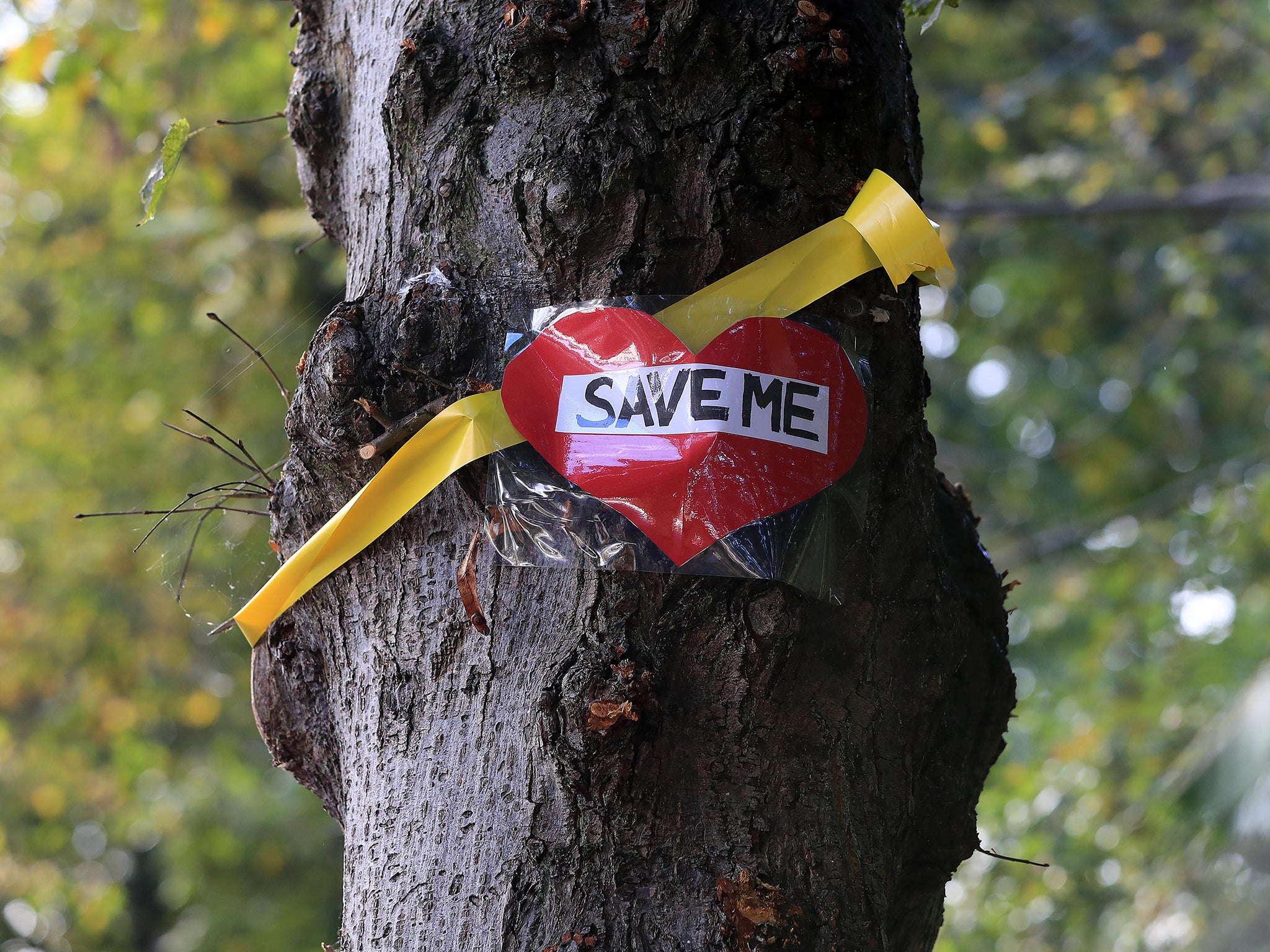Council 'reliant on police' to enable workers to carry out controversial tree felling programme, report says
Sheffield council and Amey 'dependent on the heightened level of South Yorkshire Police involvement' says independent report

A city council and its contractor have become reliant on police to carry out a programme of tree-felling, a report has found.
An independent report into the policing of anti-tree-felling protests in Sheffield said the city had now become dependent on a heightened level of policing due to the controversial policy.
It questioned why the cost of this policing could not be passed on to Sheffield City Council (SCC) and its contractor Amey – accusing the local authority of “washing its hands of the issue”.
Report author Andrew Lockley said: “The conclusion we have drawn is that SCC, and its contractors, Amey, have become dependent on the heightened level of South Yorkshire Police (SYP) involvement to carry out the tree-felling programme.”
In the report – commissioned by South Yorkshire’s police and crime commissioner, Alan Billings – Mr Lockley said that he examined one criticism – ”namely, the reliance of SCC on policing to secure the performance of a commercial contract”- and found it to be “well founded”.
Referring to one protest observed by his panel, he said: “It will have appeared to those attending that SCC had simply washed its hands of the issue and left Amey to it.”
Among a series of recommendations, Mr Lockley called for a review into why the law forbids the police from passing on its costs when it is operating on public land.
The report said: “It may be asked why the cost of policing the protests is not re-charged to SCC and Amey. The answer is that the law does not allow it.”
It said: “In an age in which private organisations carry out public functions for commercial gain, it is unclear in policy terms why the cost of policing which facilitates the performance of a commercial contract should come at nil cost to the contractor.”
The long-running Sheffield trees dispute surrounds a 25-year, £2.2bn private finance initiative agreement the council signed with Amey in 2012 for road maintenance, which includes responsibility for maintaining the city’s 36,000 street trees.
Around 6,000 trees have been felled so far and campaigners say the contract threatens a total of 17,500 – a figure disputed by the council.
The felling is currently paused after a series of incidents saw 25 protesters arrested between January and March.
The reports documents how police activity increased in February following an incident in Meersbrook Park Road in January during which a security guard’s wrist was broken.
The policing of the tree-felling first hit the national headlines in November 2016 when residents of a suburban street were woken by officers at 5am and two pensioners were arrested in an operation described by former deputy prime minister Nick Clegg as being more like a well-planned anti-terror raid than a morning of tree maintenance.
The report called this “a poor judgment call” which the force has learned from.
Dr Billings said: “When the programme does resume I will seek to engage with SCC to ensure that the policing of protests can be as low key as possible, to ensure South Yorkshire Police resources can be used to better effect elsewhere.”
Councillor Lewis Dagnall, cabinet member for environment and street scene at SCC, said: “It’s our sincere hope that achieving a compromise will mean further police involvement proves unnecessary when work recommences, as noted in the report.
“I am continuing to meet with residents and stakeholders to listen to their views, and I remain confident that a compromise from all sides will enable us to move forward as a city.”
Join our commenting forum
Join thought-provoking conversations, follow other Independent readers and see their replies
Comments
Bookmark popover
Removed from bookmarks